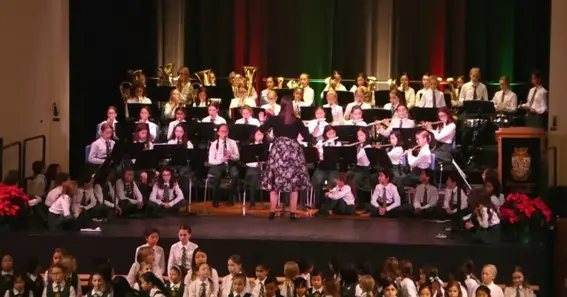When was African Folk Trilogy by Anne McGinty published? Composed and arranged in the late 1980s (commonly cited around 1988), African Folk Trilogy by Anne McGinty quickly became a staple in concert band literature. Its engaging melodies, drawn from authentic African folk tunes, and McGinty’s accessible, skillful scoring have helped this piece retain its popularity among directors and musicians of varying skill levels.
A Brief Background on Anne McGinty
Anne McGinty is an American composer and arranger known for her contributions to flute repertoire and concert band music. Throughout her career, she has written numerous original works and arrangements that combine educational value with musicality—ensuring that younger ensembles can perform pieces that sound both full and sophisticated. African Folk Trilogy exemplifies her knack for preserving cultural authenticity while making the music approachable for students.
Publication and Reception
- Publication Year: Although exact sources vary slightly, most reputable music catalogs (including those hosted by sheet music retailers) place the first publication of African Folk Trilogy around 1988. It was released under the Queenwood/Kjos imprint, which specializes in educational band literature.
- Initial Reception: Band directors praised McGinty’s arrangement for its rhythmic vitality, memorable folk themes, and suitability for middle school and early high school bands. Audiences appreciated the diversity of tunes, offering a brief yet vibrant musical trip through several African folk songs.
Musical Characteristics
- Authentic Folk Tunes
McGinty’s arrangement combines several African melodies that provide contrasting styles and moods, giving players exposure to non-Western music traditions. - Accessible Scoring
The piece is orchestrated so that younger musicians can master it without losing the energy or complexity that makes it entertaining to perform and listen to. - Cultural Education
By exploring African folk tunes, students and audience members alike gain insights into the broader musical traditions of the continent, illustrating the richness and variety of African cultural heritage.
Why African Folk Trilogy Remains Popular
- Educational Value: The piece works well as an instructional vehicle, offering lessons in syncopation, call-and-response textures, and the use of percussion typical of African music.
- Engaging Performance: Its lively, infectious rhythms and tuneful melodies ensure a strong connection with audiences.
- Cultural Appreciation: Many directors value the opportunity to broaden their repertoire with music reflecting diverse traditions.
When Was African Folk Trilogy by Anne McGinty Published? (Focus Keyword Heading)
Reiterating the focus keyword clearly here: When was African Folk Trilogy by Anne McGinty published? As mentioned, the consensus places its publication in 1988, though some resources may cite slightly varying dates in the late 1980s.
FAQs
- Who is Anne McGinty?
Anne McGinty is an American composer, arranger, and flutist known for writing accessible yet musically rich pieces for bands and flute ensembles. - What is African Folk Trilogy?
It is a set of three traditional African melodies arranged for concert band by Anne McGinty, combining rhythmic drive with memorable folk tunes. - Is African Folk Trilogy suitable for beginner bands?
It is often considered appropriate for middle school or early high school ensembles due to its moderate difficulty level and educational value. - Where can I find the sheet music?
You can purchase or order the sheet music through music retailers such as JW Pepper or directly from the publisher, Kjos Music. - Are there different versions of African Folk Trilogy?
Yes, there are multiple installments (e.g., #1, #2, #3), each featuring a different set of African folk songs arranged for concert band.
Conclusion
Anne McGinty’s African Folk Trilogy holds a special place in concert band repertoires worldwide. Its publication, dating back to 1988, introduced an engaging educational piece that remains popular among students and directors seeking music with rich cultural roots and accessible arrangements.










